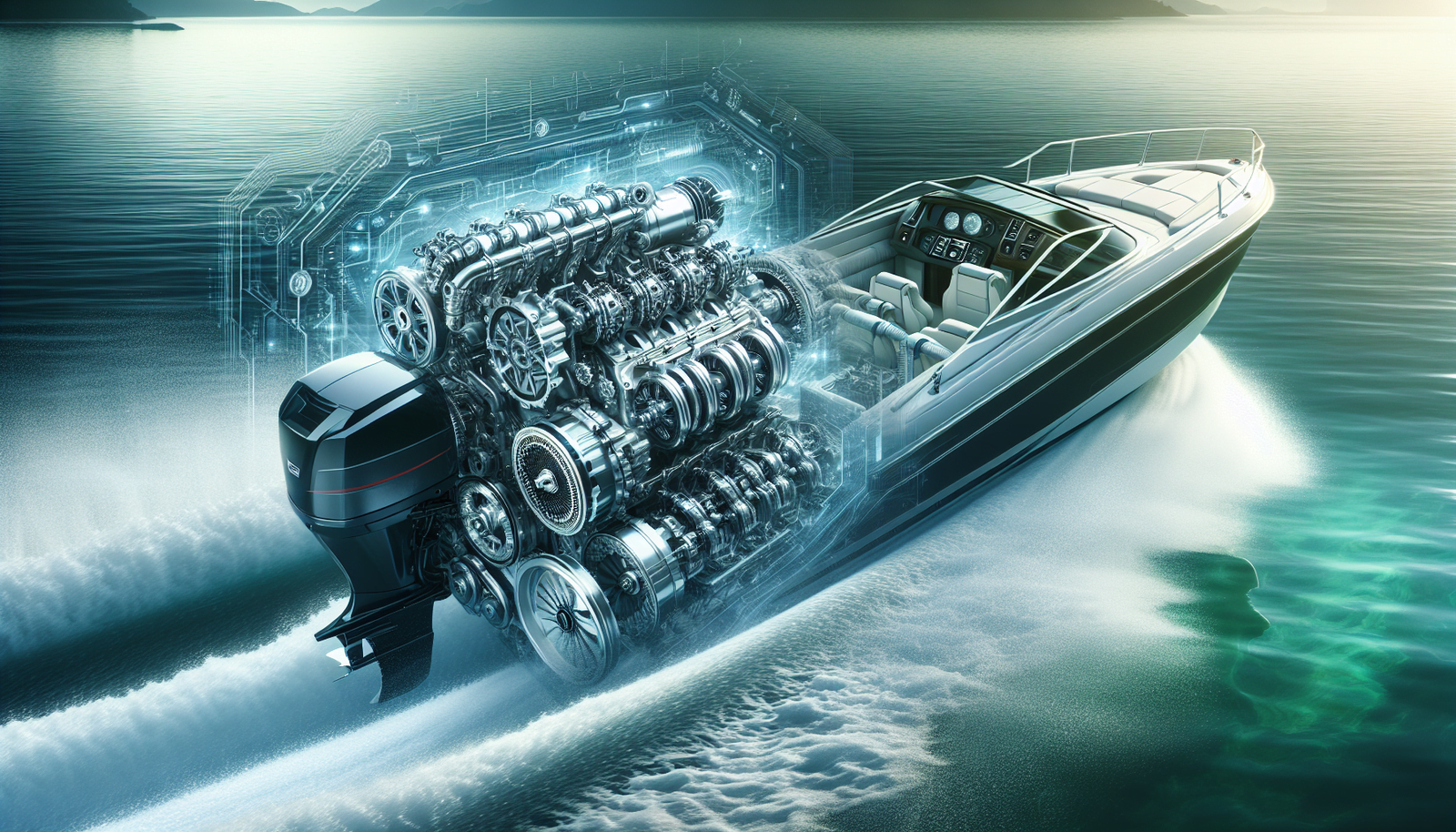Imagine cutting through the waves with greater speed and precision, your boat powered by an engine that performs at peak efficiency. This is the promise held within “Best Ways To Increase The Horsepower Of Your Boat Engine.” Whether you’re an amateur boat enthusiast or a hardened sea dog, brace yourself for a treasure trove of useful tips and straightforward advice on how to squeeze more power out of your boat engine. With the right application, your boat will be running better and faster, living up to its full potential.
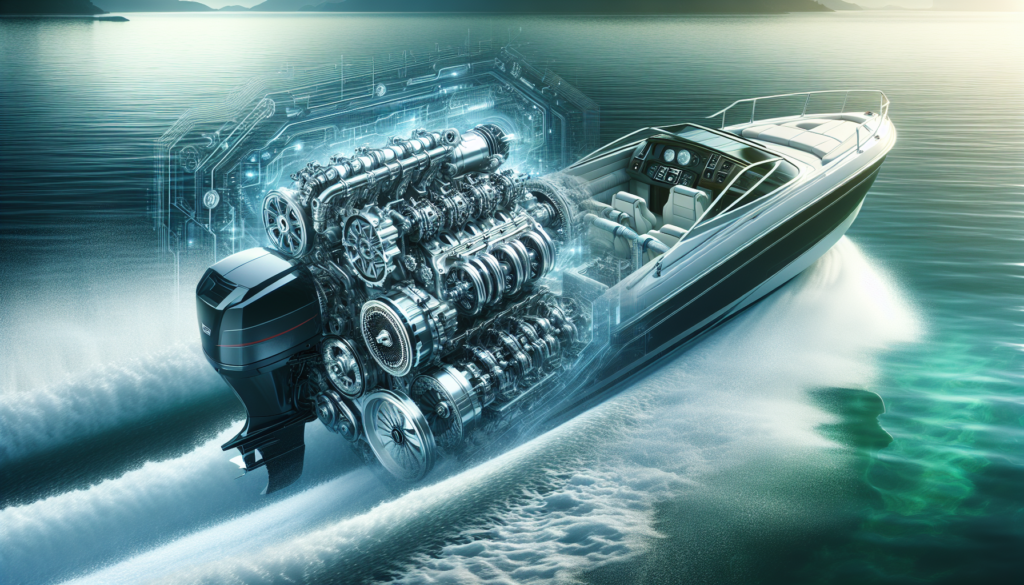
Understanding the Basics of Horsepower
Knowing how a boat performs isn’t only about understanding the water and wind currents; you also need to comprehend a thing or two about horsepower.
Definition of horsepower
Horsepower is a unit of power that’s often used to measure the output of engines. Originally invented by engineer James Watt, the term reflects the amount of work a horse could do in one hour. In the case of boat engines, horsepower stands for the engine’s ability to deliver power and speed.
How horsepower impacts boat performance
Power and speed, provided by the horsepower, are critical for your boat’s performance. Just as you’d need more strength to push a heavy object, a high-horsepower boat engine permits your boat to overcome resistance from the water and move at a faster pace. Apart from affecting the boat’s speed, horsepower also determines how well your boat handles heavier loads and tougher water conditions.
Why increase the boat’s horsepower?
Lifting the boat’s horsepower can significantly enhance performance, speed, and handling. This can be particularly beneficial if you often carry heavy loads or sail in rough waters. Also, if you’re into water sports like waterskiing or wakeboarding, increasing horsepower can give you that extra kick of speed you need for a thrilling ride.
Upgrading Your Propeller
Your boat’s propeller is another key player when it comes to horsepower.
How the propeller affects horsepower
The propeller is, in essence, the conduit for the engine’s horsepower. A minor change to the propeller can have a significant impact on your boat’s speed and performance. A propeller that’s too large or too small, not angled correctly, or made from inferior material may limit the transfer of the engine’s horsepower to the water.
Choosing the right propeller
Selecting the right propeller for your boat plays into achieving the maximum horsepower output. You should consider factors like propeller size, pitch, material, and the number of blades. While smaller, fewer-blade propellers may boost speed, larger, more-blade propellers can provide better handling.
Installation of the new propeller
Once you’ve chosen the right propeller, installing it correctly is critical. For a secure fit, make sure you install each part in the proper order and tighten the spindle nut to the correct torque. Refer to the manufacturer’s instructions for specific guidelines.
Enhancing the Boat’s Aerodynamics
Believe it or not, the shape and design of your boat can influence its horsepower.
Understanding boat aerodynamics
Aerodynamics, in the context of boating, refers to how the design and shape of your boat affect the way it moves through air and water. A well-designed boat can slice through the air and water with minimum resistance, maximizing the effectiveness of every horsepower the engine offers.
Improving your boat’s hull design
A flat-bottom hull boasts high speeds in calm water whereas a v-shaped hull provides smoother rides in rough water. Therefore, reshaping or refining the hull could help to elevate your boat’s aerodynamics, thereby optimizing horsepower.
How aerodynamics affect horsepower
With a well-designed aerodynamic hull, your boat can utilize the engine’s horsepower more efficiently due to reduced resistance from the air and water. This can ultimately enhance speed and performance without necessitating a more powerful engine.
Tuning the Engine
A well-tuned engine is key to reaching your boat’s horsepower potential.
The importance of engine tuning
A tune-up can help to restore your boat engine’s performance and efficiency by adjusting or replacing engine parts to their optimal settings. This can result in better fuel efficiency and lead to significant gains in horsepower.
Manual vs professional tuning
While you can tune your engine manually following a guide, a professional tuner will have more experience and knowledge of adjusting things just right. If you are adventurous, you can experiment with manual tuning, but for a thorough and accurate job, consider professional help.
How tuning boosts horsepower
When tuning your boat engine, components such as fuel injectors, spark plugs, and timing belts are adjusted or replaced for optimal performance. This can lead to an engine that’s running smoother and stronger, thereby maximizing horsepower.
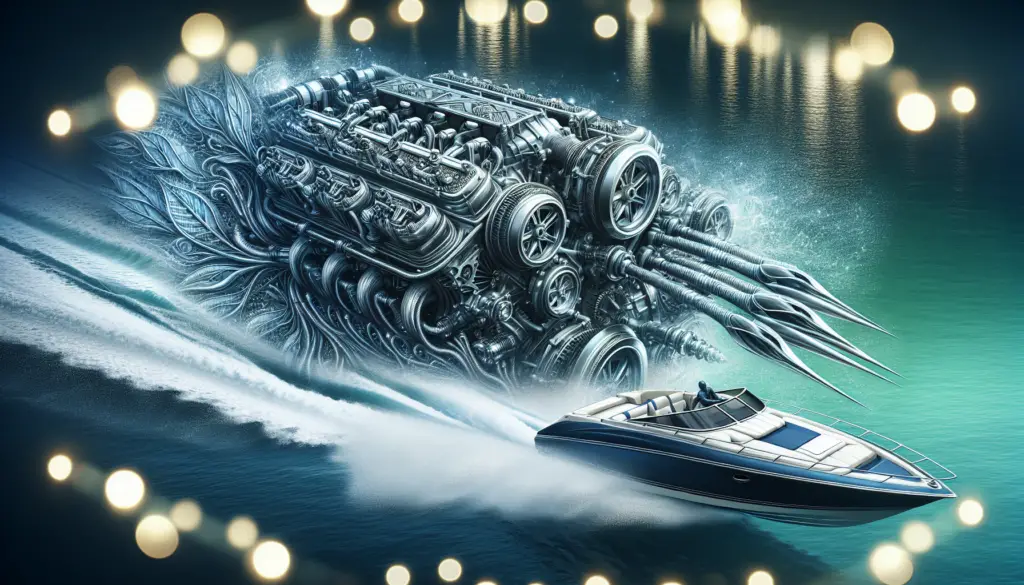
Installing a Supercharger or Turbocharger
These add-ons can significantly up your boat’s horsepower game.
The benefits of a supercharger or turbocharger
A supercharger or turbocharger boosts your engine’s performance by forcing more air into the combustion chamber. This allows more fuel to be burned, ultimately resulting in an increase in horsepower.
Choosing between a supercharger and turbocharger
While both devices serve the same purpose, they differ in operation. A supercharger gives instant power boost and is powered by the engine itself. A turbocharger, on the other hand, uses the exhaust gases to produce power, offering better fuel efficiency but with some delay. Your choice depends on what you value more – instant boost or fuel efficiency.
Installing a supercharger or turbocharger
While it’s a considerable task, installing a supercharger or turbocharger can be done on your own given you have proper guidance. But for safety and best results, consider seeking professional help.
Checking and Replacing Spark Plugs
A small component that’s often overlooked but can influence the horsepower is the spark plug.
Effects of spark plugs on horsepower
Spark plugs ignite the fuel-air mixture in the engine’s combustion chamber. If they’re not functioning optimally, they can hinder the efficiency of combustion, leading to a drop in horsepower.
When to replace spark plugs
If your boat seems sluggish, consumes more fuel, or has trouble starting, it may be the spark plugs. To maintain your engine’s horsepower, consider replacing them every 100 hours of operation or as recommended by your boat manufacturer.
Installing new spark plugs
You can replace worn-out spark plugs yourself, but make sure to purchase the right type recommended for your boat’s engine and to set them at the correct gap. Improperly installed spark plugs can lead to permanent engine damage.
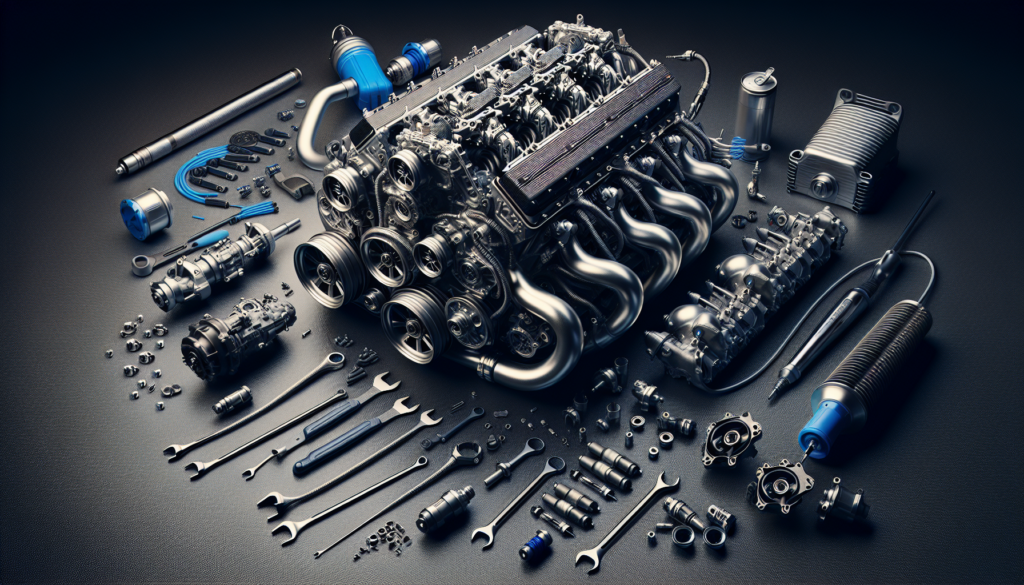
Optimizing the Fuel System
A well-maintained fuel system can assist in attaining maximum horsepower.
The role of the fuel system in horsepower
A boat’s fuel system feeds the engine with the fuel it needs to generate horsepower. An optimal fuel mixture leads to more efficient combustion, thereby maximizing horsepower.
Choosing the right fuel
The type of fuel you use can also affect your boat’s performance. Always use the grade of fuel recommended by your boat’s manufacturer to maintain the horsepower and keep the engine in good health.
Maintaining your fuel system
Keep your fuel system clean and free of obstructions for optimal performance. Regularly inspect the fuel filters and the fuel injector to ensure they’re doing their job. Routine maintenance can maximize horsepower and prolong the engine’s lifespan.
Performing Regular Maintenance
Regular maintenance is your secret weapon to preserving and even increasing horsepower.
The impact of maintenance on horsepower
Regular maintenance allows you to spot potential issues that could hinder performance and address them promptly. It also keeps the engine running at its peak, thereby ensuring maximum horsepower at all times.
Routine maintenance tasks
Some routine tasks include cleaning and checking the air filter, adjusting the carburetor, replacing old spark plugs, and changing the oil. Regular inspections of the propeller, fuel system, and other engine parts also add to maintaining a consistently high horsepower.
Scheduling your maintenance
It’s recommended to perform regular maintenance after every 100 hours of operation, or at least once every season. However, the frequency should comply with the manufacturer’s guidelines.
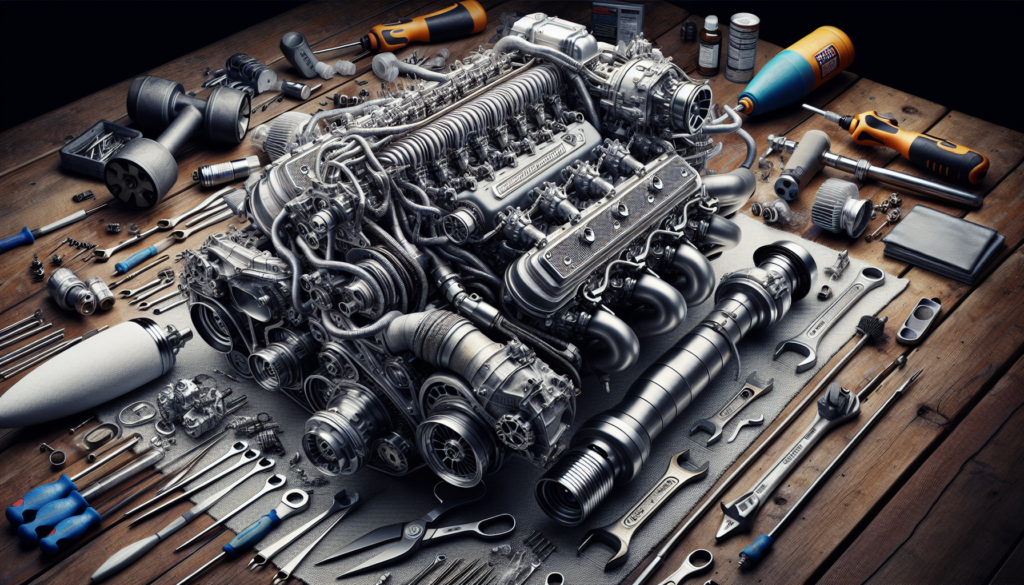
Using Performance Chips
Performance chips are a modern solution to hiking horsepower.
What are performance chips?
Performance chips, or power chips, are aftermarket components that optimize the effectiveness of various engine elements. By doing so, they refine the combustion process, reducing fuel consumption and increasing horsepower.
How do chips increase horsepower?
Performance chips enhance horsepower by modifying the fuel-air balance, ignition timing, and other parameters for more efficient combustion. They electronically adjust the engine’s control unit for better performance.
Choosing and installing performance chips
Several types of performance chips cater to different needs. While some focus on increasing power, others enhance fuel efficiency. Do thorough research to select the one that fits your needs. Installation could be a DIY task, but professional installation ensures full effectiveness.
Switching to a Higher Horsepower Engine
When all else fails, a new powerhouse can be the answer.
When to consider a new engine
If you’ve invested time and effort in enhancing the horsepower but see little or no improvement, or if your current engine is old and outdated, consider swapping to a higher horsepower engine.
Choosing the right engine
When picking a new engine, considering your boat’s size, weight, and purpose is crucial to select an engine that offers just the right horsepower. Too much horsepower can be dangerous, while too little can be underwhelming.
Installing a new engine
Installing a new engine is a job for professionals. It involves precise fitting and aligning, which if done incorrectly, can hamper performance or cause equipment failure. Always choose a reputable professional to put in your new engine.
By understanding the fundamentals of horsepower and investing in the right places, you can exploit the maximum potential of your boat engine and enjoy powerful and exhilarating voyages. Remember, though, horsepower is not everything — safety should always be your top priority.

